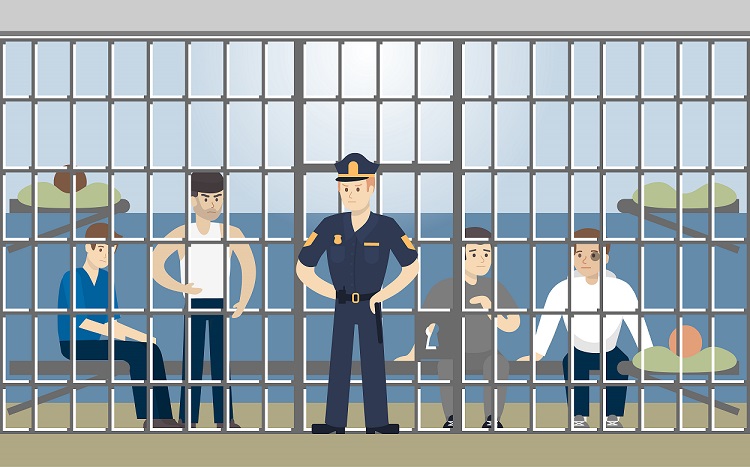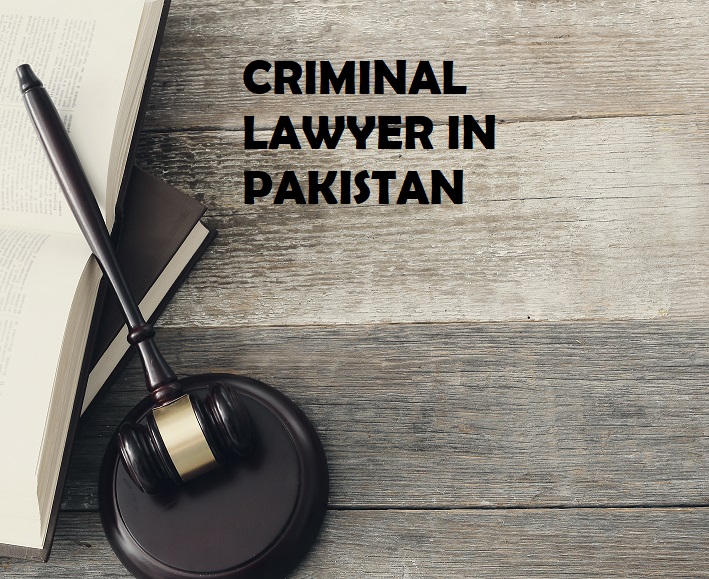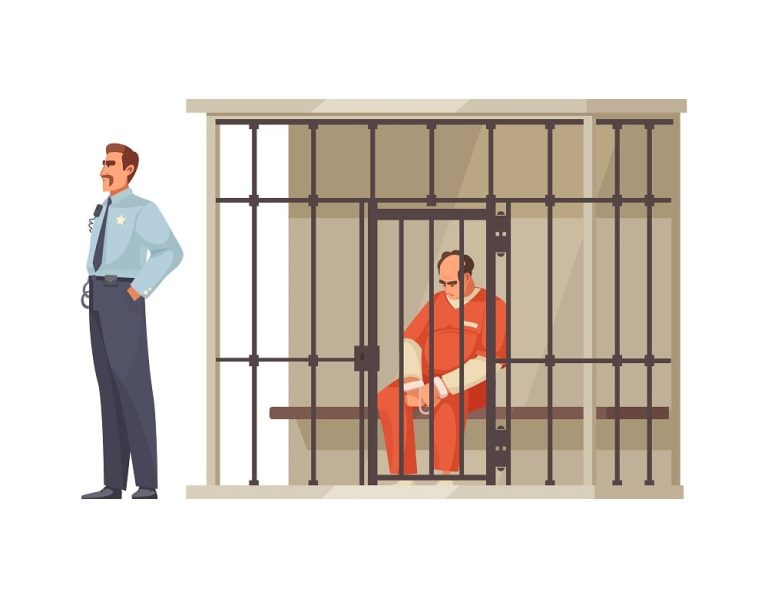A criminal lawyer means a lawyer which deals with criminal matters and acts as counsel from the plaintiff or Defendant side. A criminal lawyer has roles and responsibilities which will be discussed in this article.
This kind of liability falls inside the uncharted territory of criminal law. This explains why the state continues to conduct the accused’s investigation. Criminal law’s primary goal is to limit the state’s ability to intervene in any situations where actions or inactions are involved. The penal code of the nation prohibits any behavior that undermines the authority of the state.
Pakistan has an extremely comprehensive Criminal code. Some of which are out-of-date but largely cover all ideas that constitute an offense.
Understanding Pakistan’s social and cultural diversity is essential to comprehending the country’s criminal code. When Pakistan was a colony of the British Empire and India was a colonial nation, the British Empire introduced the majority of the criminal legislation in Pakistan. Later on, though, the social background came to be understood, and an effort was made to modify the penal code.
The criminal justice system operates on a broad enough scale to accomplish its aims and objectives. Certainly, making society safer for its inhabitants is its ultimate purpose. The most widely used goals of the criminal justice system are as follows.
GOALS OF CRIMINAL LAW:
The most commonly acknowledged goals of Pakistani criminal law are
- By arresting, pursuing, and deporting offenders, Pakistani criminal law ought to demonstrate intolerance for illegal activity as the goal of criminal law.
- Criminals shouldn’t be permitted to take pleasure in their illegal behavior. Instead should be urged to make every effort to prevent other people from becoming victims of crime.
- Pakistan’s criminal legislation should be wisely applied to weaken those who could be a menace to society and rehabilitate convicts.
- to maintain law and order to protect the individual’s safety and welfare
- from assisting victims at all times in getting adequate compensation from their abusers.
- Make sure that everyone has effective and sufficient access to justice. This is also the responsibility of the Lawyer that suspects, defendants, prisoners, and witnesses are treated fairly. Additionally, make sure that the innocent are exonerated without retaliation and that the guilty are punished.
- Another goal is also to ensure that the justice system for criminals is effective in society.
Criminal cases:

These are some criminal cases;
False accusations of anti-state activity, embezzlement, and federal crimes of a similar nature,
Unfounded Reports of Terrorist Activity, Criminal Nature Misrepresentation,
Orders for the Gathering of Evidence (i.e. Phone Records, Government Held Data, CCTV, etc.),
Executions on a Warrant (i.e. arrest, Habeas Corpus),
FIA, CIA, ISI, and ANF Representation, Forgery,
Investigating crimes, Criminal Justice, FIR registration, Criminal Protection, Remove False FIR, Drafting and Utilizing Criminal Plea Agreements, Plea Agreements,
Driving under the influence of alcohol or drugs or both,
using drugs and drinking alcohol,
Misconduct in Court, possession of alcohol and/or drugs, Exit Control List Names Adding and Removing (ECL),
Financial and Business Crime, Goal of committing Crime,
Online fraud and hacking, theft of identity, judicial proceedings and appeals, Cheating, Criminal Injury, Battery, and Assault Cases.
Criminal laws in Pakistan:
The Pakistan Penal Code of 1860 and the Criminal Procedure Code of 1898 are Pakistan’s two primary criminal law legislation. Out of these two, the first deals with outlining all offenses.
The Criminal Procedure Code outlines the organizational structure and judicial authority of the Criminal Courts and agencies. This CODE provides the procedure for arrest, escape, and relating to the process to compel appearance through summons, warrant of arrest, proclamation, attachment, and other rules regarding processes. The Criminal Procedure Code 1898 also contains a number of general provisions. These provisions pertain to the information provided to the Magistrates and Police. CRPC 1898 also specified the procedures for to use of search warrants and summonses to provide papers and other moveable property.
The Criminal Procedure also aids in the prevention of crimes by ensuring public safety and promoting good conduct. Also help in preventing unlawful gatherings, public nuisances, or perceived threats. THE CRIMINAL PROCEDURE CODE plays its role in conflicts over real property, police preventative action, and investigative authority. The Criminal Procedure Code also deals with prosecution proceedings and delegates jurisdiction to Criminal Courts based on
The location of the investigation or trial
Complaints to the Magistrates
The beginning of proceedings before the Magistrates, and
Inquiries into cases that can be tried in Sessions Courts or High Courts.
Additionally, it specifies the type, format, and joinders of accusations, as well as the method of a magistrate trial. This format includes summary judgment proceedings and trials before the High Court and the Court of Sessions.
Pakistan Penal Code:
The Pakistan Penal Code, of 1860, outlines the severity of punishments for certain crimes and offenses done both inside and outside of Pakistan but which are still allowed to be prosecuted there under Pakistani law, as well as extraterritorial offenses. The PPC also delegates the general exclusions policy, the right to private defense, aiding and abetting, and criminal conspiracy. Additionally, it mandates actions against crimes against the state, as well as crimes against the Army, Navy, and Air Force and public peace.
The PPC further specifies the penalties for offenses involving papers, trade or property marks, falsified or fake documents, counterfeit money and banknotes, and criminal breaches of service agreements. Additionally, it specifies the penalties for efforts to conduct crimes as well as offenses including defamation, criminal intimidation, insult, and nuisance. The PPC further specifies the penalties for offenses involving papers, trade or property marks, falsified or fake documents, counterfeit money and banknotes, and criminal breaches of service agreements. Additionally, it specifies the penalties for efforts to conduct crimes as well as offenses including defamation, criminal intimidation, insult, and nuisance.
Stages of Criminal Cases:
Criminal cases in Pakistan can be at many stages. After an FIR(what is FIR) is filed, the first stage for an accused is the stage of bail, which is a short-term accommodation made by the court in the form of the accused’s release while the matter is being resolved. There are only a few reasons why bail is granted, thus it is crucial to get a skilled criminal lawyer in Lahore, Pakistan, who can win the accused released on bail so that he won’t be behind bars until the end of the trial. There are many different kinds of bail in Pakistan, but generally speaking, there are only two:
post-arrest bail and pre-arrest bail.
If the accused is arrested following the filing of an FIR, he may apply for post-arrest bail; however, if he is not, he may seek pre-arrest bail.
The tenets of criminal law are founded on the ideas of justice, equality, and morality. They offer sufficient criteria for the creation of a fair punishment policy. Four key components—politically, specificity, consistency, and punitive sanction—must be present in criminal legislation for it to be effective.
Responsibility of Criminal Lawyer/Advocate:

When a person completes his graduation law and gets a bar council license from the provincial Bar Council he can practice in court. After getting a license he will choose a field of practice. you can also read how to become a lawyer in PakistanThese are some responsibilities of a Criminal Lawyer;
- Giving clients guidance over the phone and in person;
- reviewing records pertaining to the case and the offense;
- representing defendants at all phases of a criminal prosecution, from the police investigation through their advocacy in court; (including witness statements, police reports, forensic reports, medical records, etc.)
- Planning, organizing, and researching issues
- Visiting detainees at jails and police stations to communicate with them
- Producing legal documentation
- Building a thorough, accurate, and convincing case for the accused
Responsibilities of SOLICITOR:
we will talk about the responsibilities of a Solicitor in Criminal Cases
- Observing an offender’s legal rights;
- Describing potential outcomes in the case and offering direction and counsel to the accused
- Deliberating whether the evidence is sufficient to accuse the defendant
- Standing up for the accused by contesting the evidence against them and speaking with witnesses to back up their claim.
- Making sure a case gets a fair hearing if it goes to court.
Responsibilities of Criminal Prosecution:
choosing the field of Practice is very important in the law field you can help from this article https://validlaws.com/what-type-of-law-should-i-practice-best-legal-tips/
The criminal prosecutor also has many responsibilities as;
- choosing whether to move criminal charges forward after seeing police evidence Communication with the police, probation services, and other law enforcement and criminal justice organizations;
- Close collaboration with caseworker teams and administrative personnel
- Communicating with court personnel and criminal defense attorneys
- Getting in touch with crime victims
- Ensuring that criminal offenders receive fair treatment
- Making the defendant the target of a judicial proceeding
- Counseling and training legal representation
Territorial jurisdiction:
The Supreme Court of Pakistan, which is the country’s highest court, has ultimate administrative control over how all of the country’s criminal courts operate.
In keeping with various laws, law-enforcing agencies can detain and conduct investigations of suspects. When this has been completed, they must pursue charges against the suspect through authorized municipal, provincial, or federal courts, or, if the crime fits the provisions, they can proceed with the certification procedure and, subject to the provisions of the Criminal Procedure Code, conduct an investigation.
According to Article 10 of the Pakistani Constitution, the court must permit the accused to select a defense attorney before the trial even begins.
Then the court issues a charge against the suspected offender, outlining the precise crime’s nature as well as the act or omission that makes it.
The prosecution is then given a chance to submit any evidence it may have in its possession against the alleged perpetrator.
Within the bounds of the law, the defense attorney for the alleged criminal is allowed a full chance to cross-examine and challenge the prosecution’s evidence.
Despite the fact that prosecution is the responsibility of the state and must be handled by state-appointed attorneys, anybody who is wronged by the offense may select a private prosecutor in addition to the state attorneys who are already required to prosecute.
Inquiry by JUGDE;
The presiding Judge asked the alleged criminal a few questions pursuant to Section 342 Cr PC after the prosecution finished presenting its case. These inquiries are particularly important because the presiding judge provides the accused the chance to clarify the damaging information that has been brought against them. A chance for the alleged perpetrator to show up as his own witness is also provided. Additionally, he or she is given the chance to produce supporting documentation and witnesses. The trial is over when the defense has finished, and the presiding judge issues a ruling. A judgment could be one of exoneration or punishment. Both the prosecution and the alleged offender have the right to appeal the trial court’s decision. The trial’s immediate higher court receives the appeal.
Punishment in Criminal Cases:
The use of punishment as a form of retaliation and deterrence is generally acknowledged. The type of offense and the punishment are different. The same offense may have various punishments. But the Pakistani Constitution expressly forbids retrospective punishment and double punishment in any circumstance. According to Articles 12 and 13, no one may be punished more than once for the same offense. Article 12 says that “No legislation shall allow the punishment of a person for an act or omission that was not punishable at the time of the act or omission.” No one shall be required to testify against themselves when charged with an offense, according to Article 13(b).
No one should be deprived of life or liberty unless, in conformity with the law, the Pakistani Constitution’s Article 9 states categorically. This clearly defines the boundaries of Pakistan’s criminal law. Additionally, Article 8 of the Pakistani Constitution expressly states that the law “must never be against the generally recognized Fundamental Rights.”
Skills required for a good Criminal Lawyer:
- Motivation and tenacity
- Quick thinking and information processing skills • A high level of social intelligence
- Impartiality and neutrality
- Outstanding verbal and presentational abilities
- The capacity for understanding motives, sentiments, and emotions
- The capacity to function well under duress
- The capacity to make morally right judgments with an open mind
- Proficient analytical and research abilities
Most experienced criminal lawyers in Pakistan:
There are many criminal lawyers in Pakistan known due to their experience. But, we will discuss the most known and top experienced criminal lawyers in Pakistan.
Aitzaz Ahsan;
Aitzaz Ahsan Is counted among the top criminal lawyers in Pakistan born in District Rawalpindi. His education is LLM and he belongs to Murree.
Aitzaz was elected as a known member of the Senate in 1994 and was elected as leader of House two-time from 1994-1997. Aitzaz Ahsan is a politician and lawyer in Pakistan.
Ali Ahmad Kurd;
Ali Ahmad Kurd Is a lawyer who is president of the Supreme Court Bar Association and is prominent in the lawyer movement in the country. Kurds are counted as top criminal lawyers in Pakistan.
The Pakistan Muslim League-Nawaz nominated Ali Ahmed Kurd for the position of Chief Election Commissioner of Pakistan in 2012. However, he was disqualified due to constitutionally prohibited ineligibility. He has been given thought as a potential prime minister caretaker.
Asma Jahangir;
Asma Jahangir Co-founded and served as chair of the Human Rights Commission of Pakistan. She was a social activist and lawyer for individual rights from Pakistan. She is counted among the top criminal lawyers in Pakistan. Jahangir was well-known for holding a significant position in the Pakistani Lawyers’ Movement, serving as the International Crisis Group’s trustee. Asma Jahangir is also the UN Special Rapporteur on Freedom of Religion or Belief.
Ashtar Ausaf Ali:
Ashtar Ausaf Ali is a Pakistani lawyer who is counted among the top criminal lawyers in Pakistan. Formerly served as Pakistan’s 32nd Attorney-General from 2016 to 2018.
Previously, Ausaf held the position of Dual Advocate General of Punjab from 1998 to 1999 and from 2012 to 2013. Unique Assistant to the Prime Minister on Law and Justice from 2015 to 2016. Prosecutor General of the same province from 2011 to 2012.






